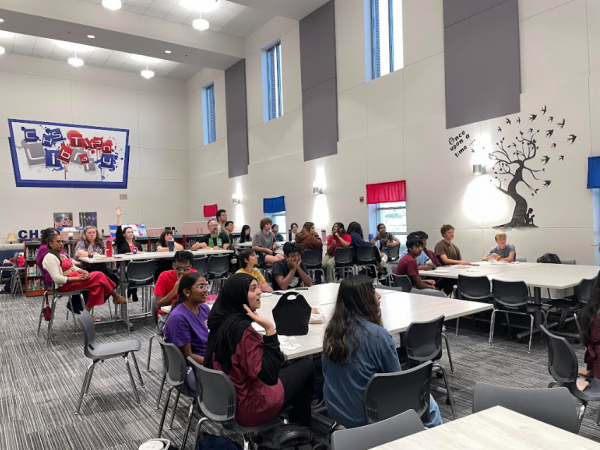The Importance of Bilingualism
Studies conducted by the University of Washington illustrate that fluency in at least two languages leads to a wage increase of anywhere from 5 to 20 percent and additionally has become a critical factor companies consider in the process of staff recruitment and position promotions. Bilingualism: a concept taking the global sphere of interactions by a storm, stirring up conversation and displaying a myriad of opportunities to the people.
“Bilingualism was life changing, opening up a world of opportunities I had never known to be possible before.” Natasha Hernandez, Spanish I and PAP Spanish II teacher at Frisco Centennial High School, states in response to questioning over the benefits of bilingualism in the professional and academic world.
“It allows me to communicate with the latino parents of my students who may not be entirely able to understand English to a complex level.” Mrs. Hernandez elaborates, adding that bilingualism expands the groups in which equipped individuals are able to interact with and inhibits the extent to which different cultures can be understood and appreciated.
Bilingualism is not only a strong motivating factor for hiring in almost all career fields, with special emphasis on those that are particularly service oriented such as teaching, but moreover, is a highly impressive feat to include on college applications due to the dedication its pursuit requires, the barriers it breaks down, and the cultural awareness it often sparks.
According to a report in US News, there are “many bilingual scholarship programs” available to students who possess said skill set, as such students, more often than not, prove to be assets to the universities, as bilingualism commonly ties hand in hand with increased cognitive functions and the more obvious notion of increased communication abilities.
In casual instances of day-to-day life, bilingualism frequently plays the role of a superhero, swooping in and posing a simple solution to the easily solved, but still hindering, lack of effective methods of communication.
Mrs. Hernandez, reflecting upon a situation she observed at a local Walmart recalls that “a Spanish speaking woman was getting upset, frustrated because she could not be understood by the employee. There was obvious tension on both sides and I had to step in and help.”
This is a common problem people of varying ethnicities are struggling with all across the globe; a problem that bilingualism can fix.
Becoming bilingual isn’t an easy task, but is something that will prove to be far beyond beneficial and worth the effort in the end. “It was definitely a challenge for me. I had to use everything I saw in my normal daily life as a reference to build my understanding. I would try to read as many menus, watch as many English shows and listen to as much English music as I possibly could so I could gain exposure to the common use of the language.” Centennial High School Spanish I and II teacher, Danae Delgado shares.
The advantages accompanying bilingualism at a surface level provide a solid foundation for other successes to be built upon, including the exponential inflation in payment, as bilingual employees allow for wider accessibility in sales and service, followed by a hefty backing of characteristics differentiating one student from another on college applications, allowing certain schools to meet needed diversity quotas and increase campus diversity and communications.
Most importantly, bilingualism enlarges the standards of communication and cultural consciousness much needed in today’s prideful and conflicting society, encouraging modern day diplomacy and deteriorating blockages between contrasting ethnic groups of people in the expansion of horizons and a willingness to learn the backbone of a culture different from that of one’s own.

Hi everyone, my name is Sofia and I am a senior at Centennial! I am the Editor-In-Chief of Newspaper this year and additionally serve as Centennial's Senior...






